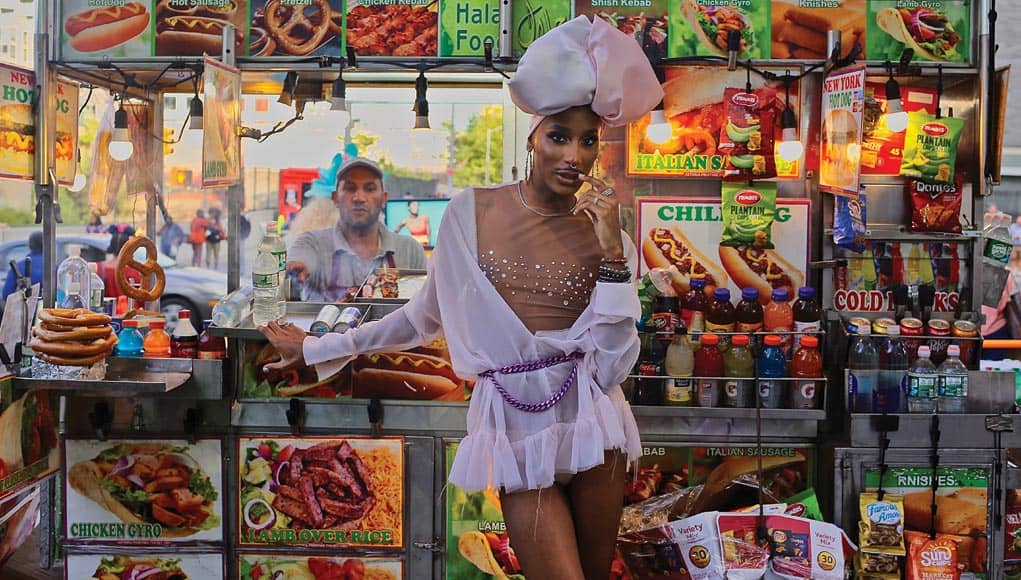by Rebecca M. Alvin
Top Image: The End of Day is a Drag (Mind of Mendoza, Halal Food), 2019, Manhattan, NYC. Dye sublimation on aluminum, 24 x 30 inches
Beauty is something we all respond to, universal and at the same time, highly individual. There are certain things human beings tend to find beautiful. The feeling of sand against your bare feet as you walk on a pristine beach. The smell of lilacs wafting in the breeze. The symphony of songbirds we wake up to each morning. The taste of a delicious summer berry grown in your own backyard. Or that beauty cliché, an awe-inspiring Cape Cod sunset. Beyond sensual experiences of beauty, there are those moments that touch our souls that we also call beautiful: a shared moment between a parent and child; the embrace of a lover after being away for a long time; the bittersweet ending to a favorite book or film that leaves us simultaneously sad that it’s over and overwhelmed with pleasure in how the ending is expressed.
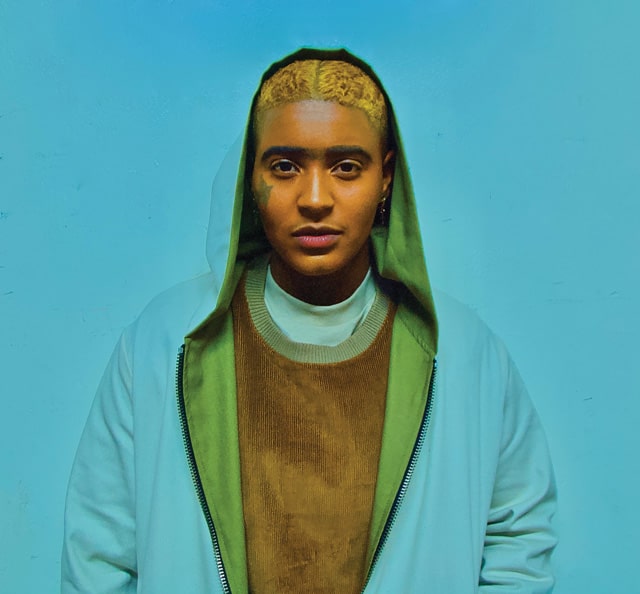
When it comes to people, beauty is not always a visual thing. In fact, it is rarely the visual aspect that sustains our attention when we find someone beautiful. It might be the way they carry themselves, their laugh, or the way they talk, or some other magnetic charm we cannot put a finger on. But even visual beauty has its variations. There are those considered “classically beautiful,” but often those traits are manufactured and not what we authentically find attractive. Although symmetry is supposedly a mark of beauty, we’re just as likely to be drawn to someone for something slightly different about them: a crooked tooth, a slight asymmetry in the nose, or a scar or beauty mark, for example.
Photographer Ruben Natal-San Miguel, whose work is on view at Gary Marotta Fine Art beginning July 2, thinks about beauty a lot, especially the kinds of beauty he feels are overlooked in American society, such as the beauty of African-American, Asian-American. and Latino communities. “I think beauty’s more like an emotion,” he says. “I think when you look at a person, you basically look at them physically, but also you perceive something of their soul, and basically that’s what I’m more interested in.”
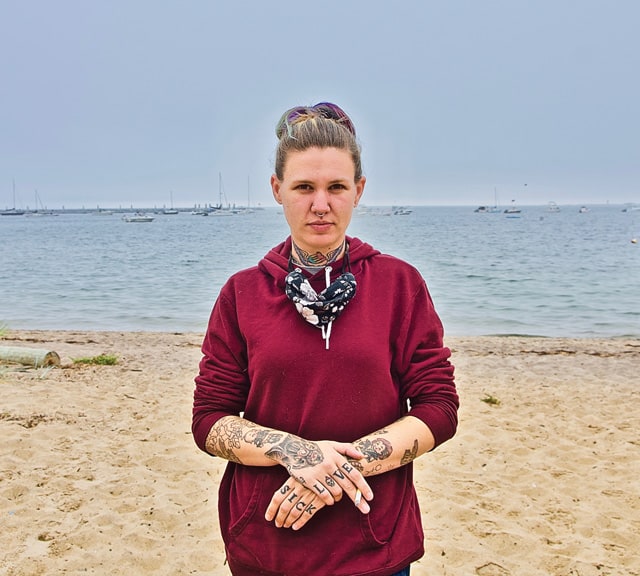
Born in Puerto Rico, the photographer is based in Harlem, New York City, but studied architecture in Boston as a young man. This background gave him his artistic sensibilities and eye for design, but he didn’t come to photography until much later. He had actually gone into the financial industry originally. But after finding himself in the North Tower of the World Trade Center on 9/11, grateful to have survived and forever marked by his direct experience with this tragedy, he made some changes in his life, including picking up a camera after years of just being a photo collector.
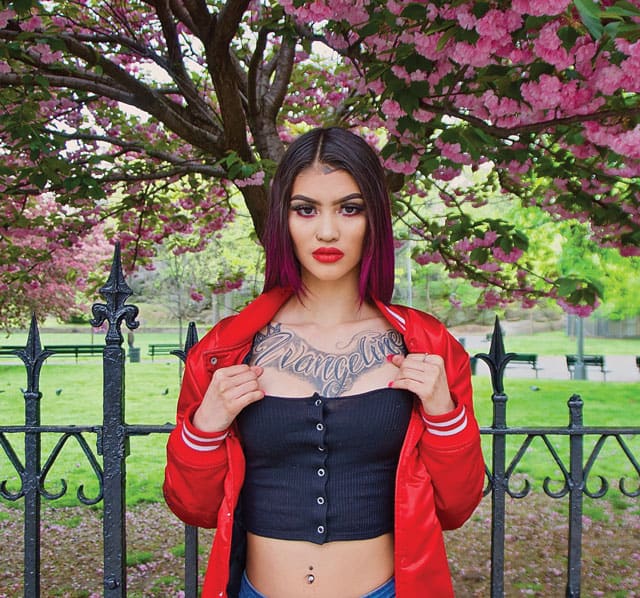
Over time, his work evolved to focus on what he calls “environmental portraits,” portraits done on the street that evoke a strong sense of place because of their unplanned nature. He has photographed in Chicago, Philadelphia, and other locations, and most notably in the five boroughs of New York City. His process is to simply approach people on the street that he’d like to photograph, interacting with them for only brief moments to ask them to pose and tell them what he’s doing. “Nine out of ten times, there’s something complimentary about them and I explain that to them. Whether it’s a tattoo or when there is something in the way they dress, or, you know, the way they stand out from the people in the crowd. I’m basically drawn to something about them that I find beautiful, and I communicate that to them directly,” he explains.
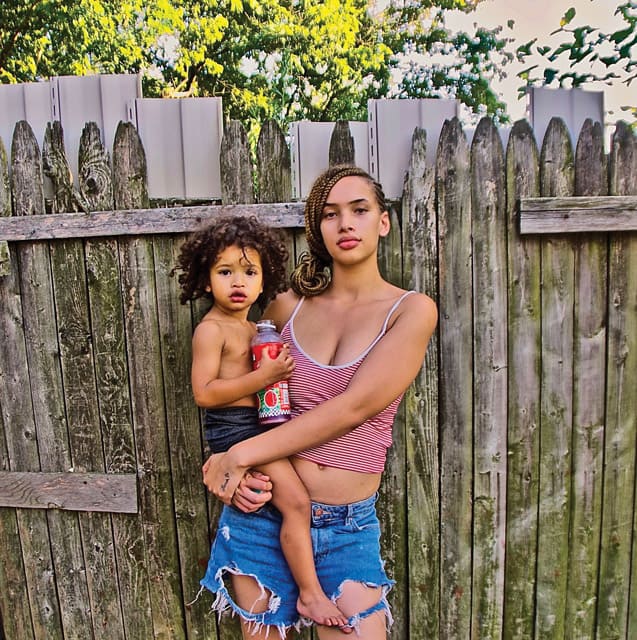
The photographs express incredible beauty that seems to come from within each subject and find its manifestation in their manner of dress, tattoos or other skin adornments, and attitudes that leap off the photograph, almost daring you to question their beauty, as unconventional as it may be. For the show here in Provincetown, American Beauty, Natal-San Miguel includes some images from his exhibition Women R Beautiful, which originally opened at Postmasters Gallery in New York, but was closed down because of the COVID-19 pandemic. He then moved that show to a very successful online exhibition at the Mint Museum in Charlotte, North Carolina. In addition, there are other images of men and women in a variety of locations, including Provincetown.
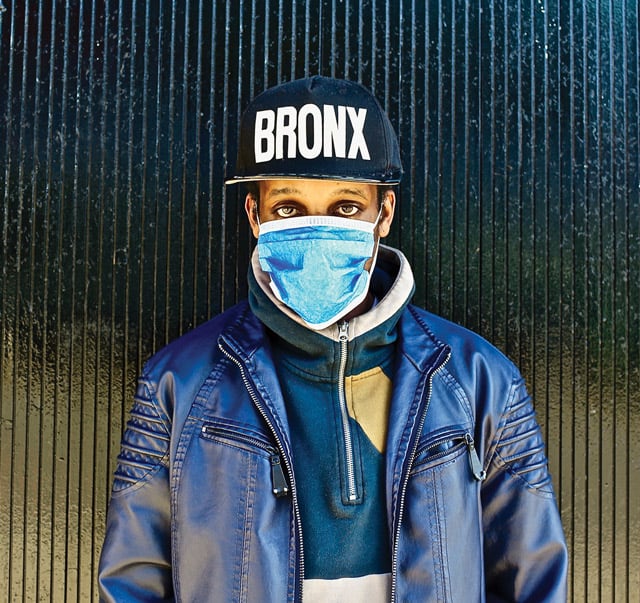
Natal-San Miguel has been coming to Provincetown for over 30 years, (spending some time he says as a “go-go boy” here in fact), and it’s on his list of places to profile, focusing on our hidden diversity. Despite his long history with the town, he is aware that it is complex and requires him to pay attention to those who live here and get the real story of how diversity is defined in Provincetown specifically. “I’m only going to go into communities that I know and have researched well before I make a project,” he says.
Looking around at other galleries, he pulls no punches, saying the artwork does not reflect the diversity that exists here. He’s interested in the range of immigrants in our town, the Jamaican community, the working class as well as the vacationers, all of it. The idea is to acknowledge those who go unseen in all sorts of communities.
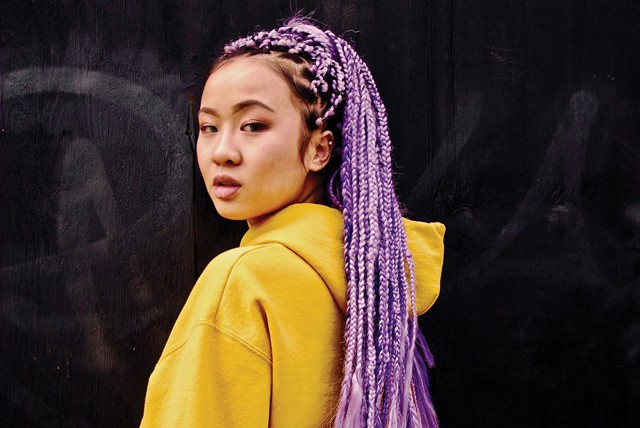
His work is very much rooted in a social consciousness, however, it isn’t explicitly political or divisive. For example, he has also photographed in his native Puerto Rico, where he says there has been a disturbing trend of women (both cisgender and transgender) being murdered that he wanted to call attention to as an artist. He’s in talks with Museo de Arte Contemporáneo de Puerto Rico in San Juan about acquiring his portraits, but he is also interested in doing a portrait series there to address this. “Women need to be more respected,” he says. “I come from a family where my mother was not allowed to look at her father when she was talking to him. I saw that at five years old. So when things are getting better and you have the power and voice to do so, you know, I’m going to continue this work, I don’t know, maybe until I die!”
If there’s something you can say about the type of beauty in Ruben Natal-San Miguel’s photographs, it’s that these people are first and foremost individuals, comfortable in their own skin—at least when encountered in their own neighborhoods. The beauty of self-admiration and the commitment to expressing one’s personal style is not something that can be commodified. Natal-San Miguel says one of the things he likes to document is the unique fashion statements in marginalized communities before fashion designers steal them and make it trendy. “
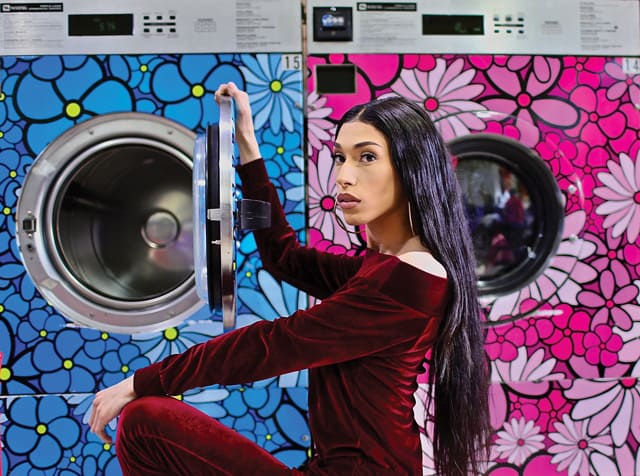
To me, beauty is represented in so many different ways,” Natal-San Miguel explains. “And sometimes these people, they have this amazing presence, and they’re not even aware of it themselves! So that’s part of my journey, to basically bring that out and sometimes make people realize what they have or their potential.”
American Beauty is on view at Gary Marotta Fine Art, 162 Commercial St., Provincetown, July 2 – August 6. Ruben Natal-San Miguel will attend opening receptions Friday and Saturday, July 2 and 3, 7 – 9 p.m. For more information call 617.834.5262 or visit garymarottafineart.com.

